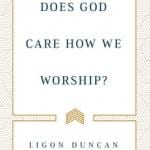This post is part of a series walking through the first volume of Abraham Kuyper’s Common Grace.
The fact that Israel under the Old Covenant was the chosen people does not mean God was ignoring the rest of the world. In fact, He was preparing the world for what would come from Israel. This was an act of constant cultivation that included both Israel and the Gentile nations. We see this truth in two ways: first, the world was prepared for the Gospel; and second, through God’s self-testimony.
Taking these in reverse order, Kuyper points us to the beginning of John’s Gospel. Here, we see that God’s inner-being pre-dated creation. God had a rich and full life that was satisfying and beautiful. Creation added nothing to God–not even relationship, as God is Trinity.
“…[we] understand it if we confess more than nominally the holy triunity of our God. Then we do not see the personality of God as deficient and in need of help, but as three persons, so that God possesses within himself the full life of personality. And if we can then raise ourselves up to the point where if necessary we would give the whole world in order to gain Christ, and if we confess with Augustine, ‘My heart remains restless in me till it finds rest in God,’ then we understand how perfectly glorious and perfectly blessed that divine life within God himself must have been from all eternity, that holy interaction of God in the triunity of the persons.” (468-469)
Only when we see how fully content and blessed God was in Himself prior to and without creation do we then turn to creation itself. Here, in creation, we do not see an expansion of God’s glory. Instead, we see a reflection of it. This reflection comes through God’s organic relationship with creation, which reaches its peak in man from the Father through the Son, all from God. The steps we see in john is that first God’s glory begins with God Himself and by Himself; then it is reflected in creation; and finally God’s glory is reflected in His Image in man.
Consequently, God was man’s Light–his spirit and consciousness. Life in creation is not inherent to creation, it is rather from God. Even our continued existence comes through God’s ongoing provision:
“Were the Word to withdraw from it, the universe would fly apart like dust. Only the eternal Word in the creation makes it the bearer of the thoughts of God and thereby into a cosmos… He is the supporting and animating force that upholds it all so that it remains standing.” (471)
The Word, as we see in John 1, descends to creation, and from there rises ‘to ever higher glory,’ first ‘toward organic life,’ and then through creation to man. (472) Thus, the Light of God shines through all of creation and among all creatures. to be sure, it shines with more or less intensity here or there. But it shines nevertheless in all people, in consciousness, in reason, and in language. The Light shines through all of these and into all of our lives.
Enter sin.
Yet, even then all things–even all things in hell–“hold together in Him.” (473-474) Darkness is everywhere, but is also restrained by common grace. The dark does not overcome the Light. In fact the Light keeps shining and is not overcome. The ‘twilight’, as it were, that holds back utter dark is common grace.
Dr. Coyle Neal is co-host of the City of Man Podcast and an Associate Professor of Political Science at Southwest Baptist University in Bolivar, MO












